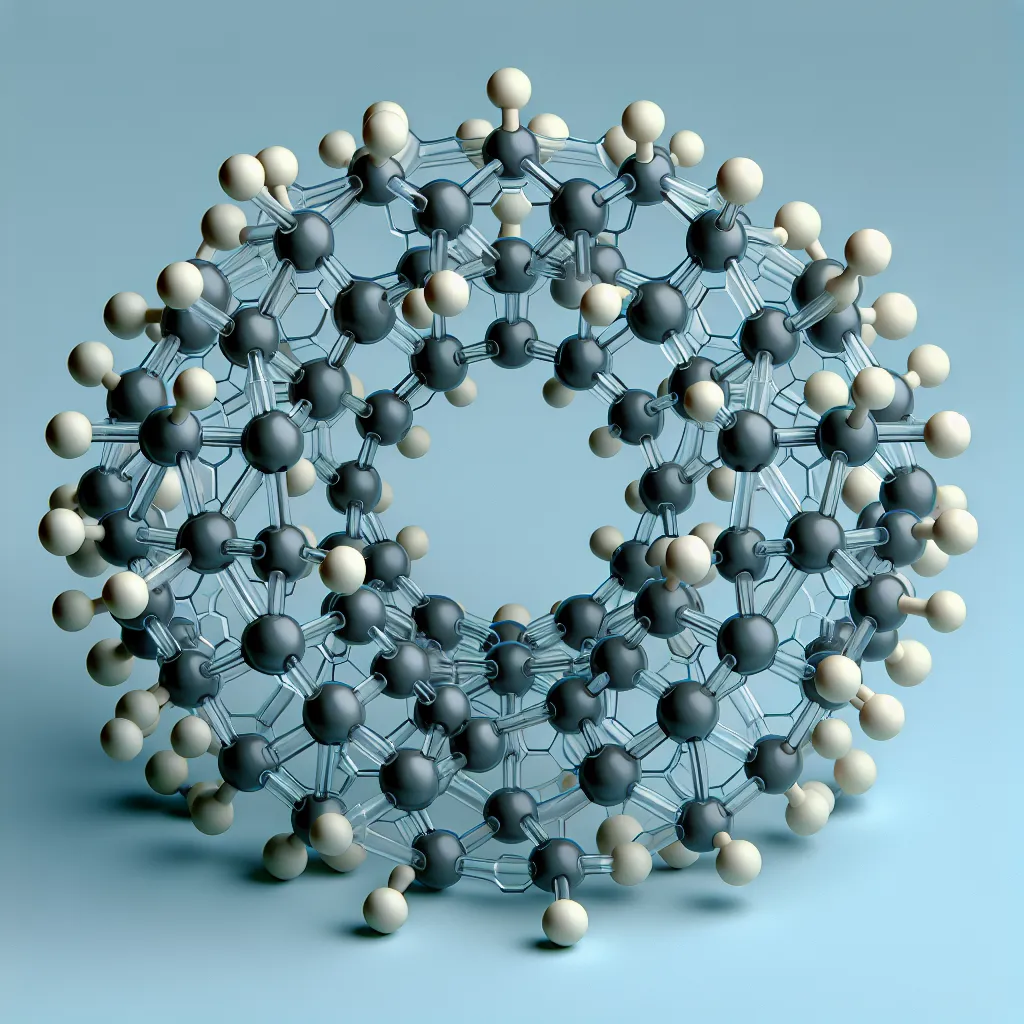The term ‘macrocycle’ is a crucial vocabulary item for IELTS learners, particularly those aiming for high scores in the Reading and Writing sections. Let’s break it down:
- Definition: A macrocycle is a large ring-shaped molecule containing at least 12 atoms in the ring.
- Word Type: Noun
- Pronunciation: /ˈmakrəʊˌsaɪkəl/

Context and Usage of ‘Macrocycle’
Examples in Context
-
The chemist synthesized a novel macrocycle for potential use in drug delivery systems.
Analysis: This sentence demonstrates the application of macrocycles in pharmaceutical research, showcasing their relevance in advanced scientific contexts. -
Macrocycles play a crucial role in host-guest chemistry due to their unique structural properties.
Analysis: Here, we see the importance of macrocycles in a specific branch of chemistry, highlighting their functional significance. -
The research paper discussed how macrocycles can be tailored to selectively bind specific molecules.
Analysis: This example illustrates the adaptability of macrocycles and their potential in molecular recognition, a key concept in biochemistry. -
Natural macrocycles, such as porphyrins, are essential for many biological processes.
Analysis: This sentence introduces the concept of naturally occurring macrocycles, linking the term to biological sciences. -
The IELTS Reading passage focused on the synthesis and applications of supramolecular macrocycles.
Analysis: This example directly relates the term to an IELTS context, demonstrating how it might appear in a test scenario.
Common Contexts
In IELTS, ‘macrocycle’ is likely to appear in passages related to:
- Chemistry and biochemistry
- Pharmaceutical research
- Materials science
- Nanotechnology
- Environmental science (e.g., in discussions about molecular filtration)
Frequency in IELTS
While ‘macrocycle’ is a specialized term, it may appear in IELTS Academic Reading passages, particularly in sections dealing with scientific advancements. It’s less likely to be required in the Writing or Speaking sections unless the task specifically relates to scientific topics.
Vocabulary Analysis
Word Structure
- Prefix: ‘macro-‘ meaning large or long
- Root: ‘cycle’ referring to a ring or circular structure
- Understanding this structure can help in recognizing and remembering related terms like ‘microscale’ or ‘nanoscale’
Synonyms and Related Terms
- Ring compound
- Cyclic molecule
- Large ring system
- Annulene (for certain types of macrocycles)
Antonyms and Contrasts
- Acyclic compound
- Linear molecule
- Small molecule
Memorization Techniques
Mind Mapping
Create a mind map with ‘macrocycle’ at the center, branching out to related concepts:
- Structure (ring, atoms, bonds)
- Applications (drug delivery, molecular recognition)
- Types (natural, synthetic)
- Related fields (chemistry, biology, materials science)
Mnemonic Device
Create a memorable phrase: “Many Atoms Create Robust Organic Cycles Yielding Complex Loops Everywhere”
(MACROCYCLE – first letter of each word)
Practice Exercises
Exercise 1: Sentence Completion
Complete the sentences using ‘macrocycle’ or related terms:
- The ___ structure allowed for selective binding of metal ions.
- Researchers are exploring the use of ___ in targeted drug delivery systems.
- Natural ___, like chlorophyll, play vital roles in photosynthesis.
Exercise 2: IELTS-style Reading Question
Read the following passage and answer the question:
“Recent advancements in supramolecular chemistry have led to the development of sophisticated macrocycles with applications ranging from environmental remediation to medical diagnostics. These large, ring-shaped molecules possess unique properties that allow them to selectively capture specific compounds, making them invaluable in various fields of science and technology.”
Question: According to the passage, what characteristic of macrocycles makes them useful in multiple scientific applications?
A) Their large size
B) Their ring shape
C) Their selective binding ability
D) Their recent development
(Answer: C)
Conclusion
Mastering the term ‘macrocycle’ and understanding its applications is valuable for IELTS candidates, especially those with a scientific background. Remember to practice using this term in context, relate it to broader scientific concepts, and be prepared to encounter it in reading passages dealing with chemistry or materials science.
We encourage you to create your own sentences using ‘macrocycle’ and share them in the comments section below. How would you use this term in a scientific discussion? Your practice will not only reinforce your learning but also help fellow IELTS aspirants!